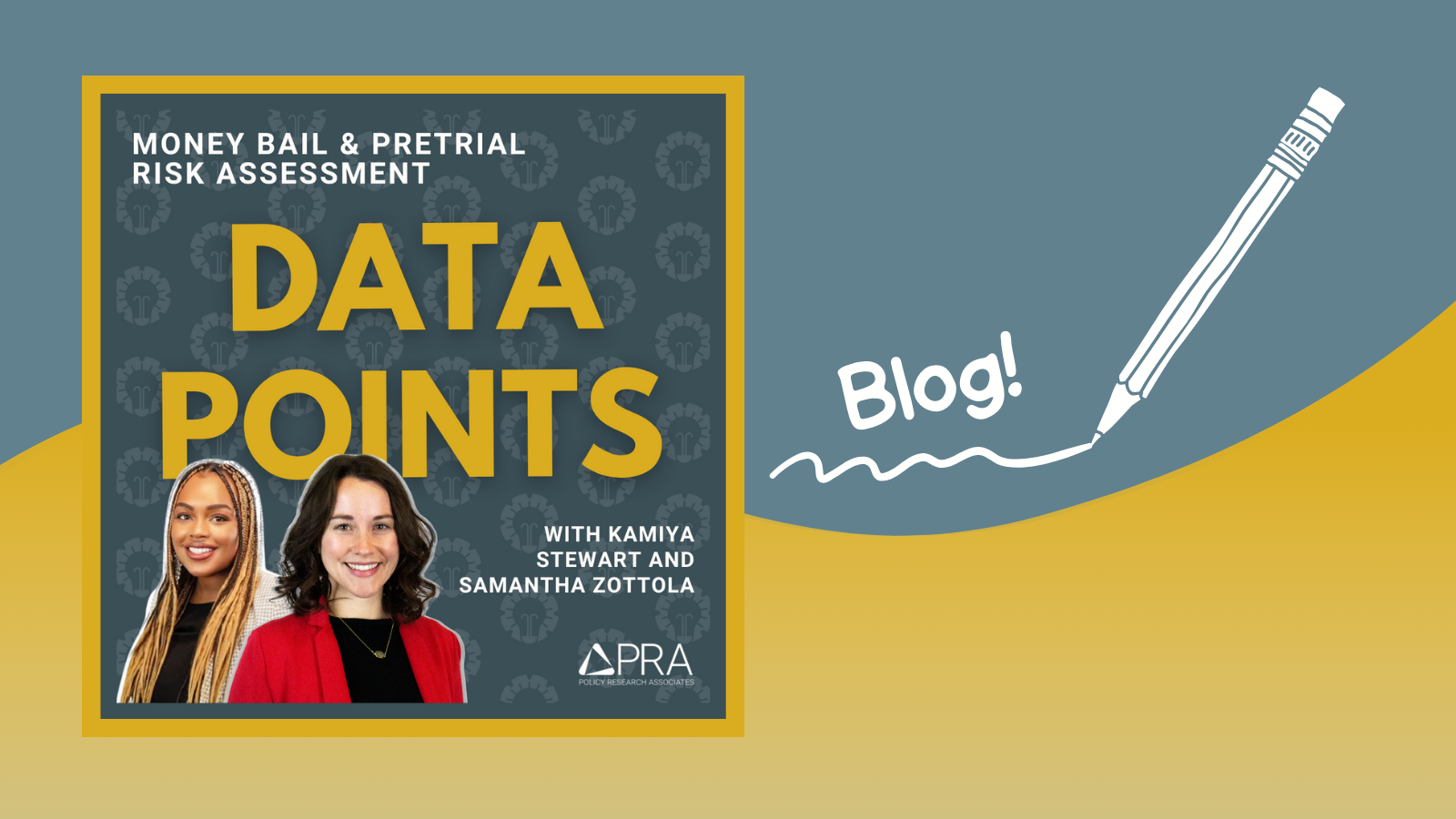In this episode of Data Points, we explored the complexities of the pretrial process, with a focus on money bail and pretrial risk assessments. Dr. Samantha Zottola and Sarah Desmarais's innovative paper, "Comparing the Relationships Between Money Bail, Pretrial Risk Scores, and Pretrial Outcomes," unveils key insights that challenge the use of money bail and support the potential of pretrial risk assessments.
Money Bail: A Problematic System
Money bail is a common condition for pretrial release, but it's fraught with issues. It penalizes individuals who haven't been convicted, and it often results in pretrial detention or reliance on bail bond agents. The fairness and effectiveness of this system is questionable.
The Role of Pretrial Risk Assessment Instruments
Pretrial risk assessment instruments are gaining popularity as tools to inform pretrial release decisions. These instruments evaluate various factors, such as criminal history and the nature of the charges, to estimate an individual's risk of failing to appear in court or being rearrested. The results provide judges or magistrates with valuable information when deciding whether to release someone or not.
The Focus of the Research
Drs. Zottola and Desmarais sought to examine whether money bail successfully incentivized individuals to attend court hearings and remain arrest-free during the pretrial period. They also investigated how well pretrial risk assessment instruments predicted whether someone would attend court hearings and remain arrest-free.
Research Findings: Money Bail vs. Risk Assessments
Dr. Zottola and Desmarais's research findings are revealing. Money bail doesn't seem to achieve its intended purpose. They found that there was no significant relationship between the bail amount assigned and pretrial outcomes. In contrast, pretrial risk assessment instruments demonstrated a strong relationship with pretrial outcomes. People with lower risk scores were less likely to fail to appear in court or be rearrested, while those with higher scores faced higher likelihood of these outcomes.
Takeaways for Reform
This research suggests the need for reform in the pretrial system. Instead of relying on money bail, which often leads to inequities, the use of research-based pretrial risk assessments may be a better option. By providing judges with objective data on an individual's risk, courts can make more informed decisions and prioritize the release of individual who are likely to be successful pretrial and focus resources on individuals who may need more support, fostering a fairer and more effective pretrial process.
Conclusion
This episode of Data Points shed light on the limitations of money bail and the potential of pretrial risk assessments. By moving away from a system that disproportionately affects those who can not afford bail and embracing data-driven approaches, we can ensure a more equitable and transparent pretrial process. We encourage you to listen to the full episode and explore the research in greater detail.
Listen to the Episode
https://soundcloud.com/policyresearch/dp-money-bail-pretrial-risk-assessment
Read the Study
https://psycnet.apa.org/doiLanding?doi=10.1037/lhb0000487
This blog post was developed with the assistance of generative artificial intelligence.


